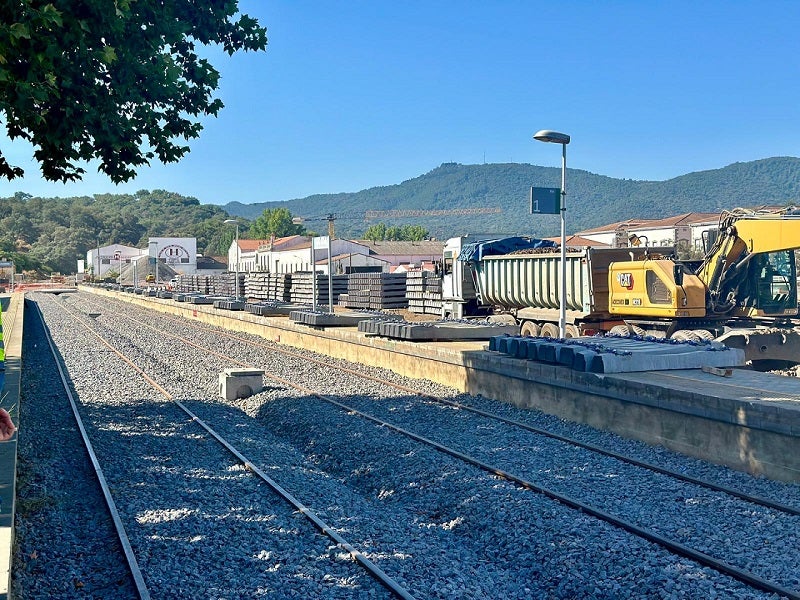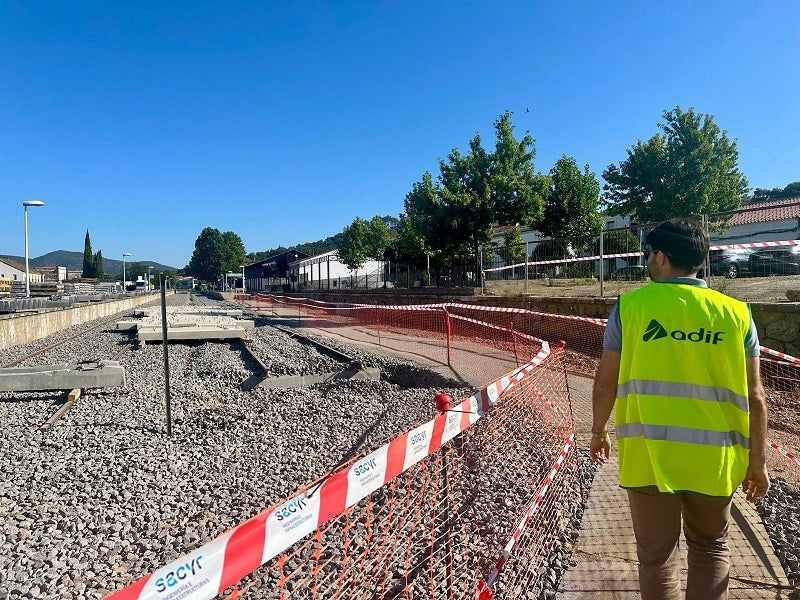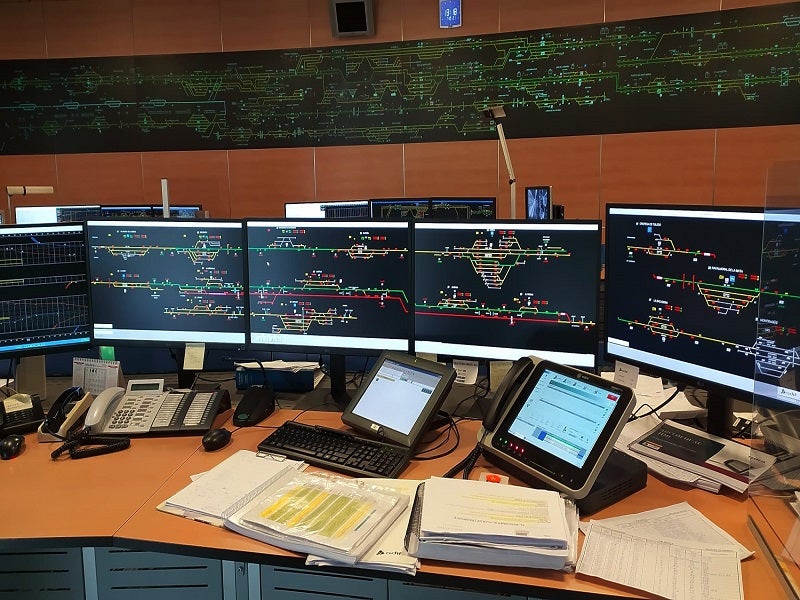The Zafra-Huelva railway line is a 180km standard gauge line connecting the provinces of Badajoz and Huelva in Spain. It is undergoing renovation to enhance the reliability, frequency, and speed of traffic between the provinces.
Administrador de Infraestructuras Ferroviarias (Adif), the state-owned railway infrastructure manager is carrying out the renovation works with an estimated investment amounting to €210m ($228.62m), which is partially funded by the European Union’s NextGenerationEU programme.
The project involves adapting the superstructure and infrastructure, as well as installing new telecommunications systems and electronic signals. The enhancements will also improve connectivity between the towns of Jabugo and Calanas.
Zafra-Huelva railway line renovation details
The project is divided into five sections for a comprehensive infrastructure and track overhaul. Key actions include track renovation with ballast, 60kg rail, and concrete sleepers, as well as enhancing the longitudinal and transverse drainage network.
Moving from north to south, the first section encompasses the Jabugo-Galaroza station, where a 9km renovation is underway. This section includes replacing track switches at the Jabugo station, safeguarding slopes in cuttings and embankments, enhancing drainage, and repairing tunnels and the underpass over the HV-1111 road.
The second section spanning 33km near the Calanas station involves modifications to the station’s track yard, including replacing track switches and demolishing the central platform. Infrastructure improvements involve protecting slopes from excavations and embankments, as well as repairing tunnels and structures.
On the Calanas – Peguerillas section, spanning 41km, a comprehensive renovation of the tracks is underway. This includes the installation of sidings at the Calanas and Gibraleon stations where the traditional wooden sleepers are being substituted with concrete ones. Furthermore, enhancements are being made to the drainage system, along with the stabilisation of slopes against excavation and embankment damage. Additionally, four bridges are undergoing extensive repairs.
The 8km Valdelamusa-Huelva section, has been completed. Additionally, the 7km Peguerillas-Huelva Cargas section, has undergone extensive improvements, including drainage enhancements and the construction of underpasses, along with track renewal.
The completion of work will eliminate up to 14 speed restrictions on the line, leading to improved travel times.
Other works include structural reinforcement efforts that are currently underway on five bridges in the province of Huelva. These include Río Ardila, Rio Murtigas, Galapera, Tallisca I, and Tallisca II. The work involves cleaning, repairing, and installing new waterproof concrete reinforcement decks, which necessitate the dismantling of tracks. Additionally, the foundations of four of the bridges are being reinforced.
Signalling and communication upgrades
The implementation of the Bloqueo de Liberacion Automatica (BLAU), an automatic release block on the single track is currently underway. This system will operate with centralised traffic control (CTC) from the traffic regulation centre (CRC) in Seville, replacing the telephone block. As part of this upgrade, mechanical interlocks are being replaced with the latest electronic technology.
Additionally, electronic interlocks are being installed in stations along the line that currently do not have them. New LED signals with automatic signal announcement and braking (ASFA) digital beacons are being installed, along with new train detection equipment (axle counters).
Furthermore, motors are being installed in turnouts to enable remote control from the interlocking system, integrating new functionalities into the Seville CTC. The uninterruptible power supply (UPS) is being updated, and a new trunk fibre-optic cable layout is expected to enhance telecommunications.
Construction of cabins / technical buildings is also underway to house the interior equipment for the interlocks and blockings.
The automatic blocking system is being enhanced with the deployment of the Global System for Mobile Communications – Railway (GSM-R) mobile radiotelephony system. This system will improve safety and reliability by enabling voice communications between trains and the CRC.
Contractors involved
Eptisa Group, an international company specialising in engineering, architecture, consulting, and IT services, was appointed to conduct a feasibility study and detailed design project for the track renovation in the Jabugo-Calanas Section of the Zafra-Huelva line.
Azvi, a construction company, was engaged in the renovation of two sections of the track spanning over 30km each, focusing on upgrading the track superstructure, ballast, and sleepers.
Prefabricados Delta, a concrete contractor, was tasked with supplying sleepers for the renewal of two sections of the railway line, tendered by Adif valued at €1.15m ($1.3m).
Ayesa, a provider of digital and engineering services, is offering technical assistance for the control and supervision of works related to the complete renovation of infrastructure and track in the section from 96+430 to Calanas on the Zafra-Huelva line.
IT company Thales, in partnership with construction company Sistem, is carrying out construction works to remove telephone blockages on the railway line.
The contract valued at €987,009 ($1.12m) to supply 39,000 tonnes of ballast for the project was awarded to a joint venture formed by Cantera Antonio Frade, Aridos y Recuperaciones; Movimientos de Tierras y Aridos del Tinto, y Probisa Vias y Obras.





